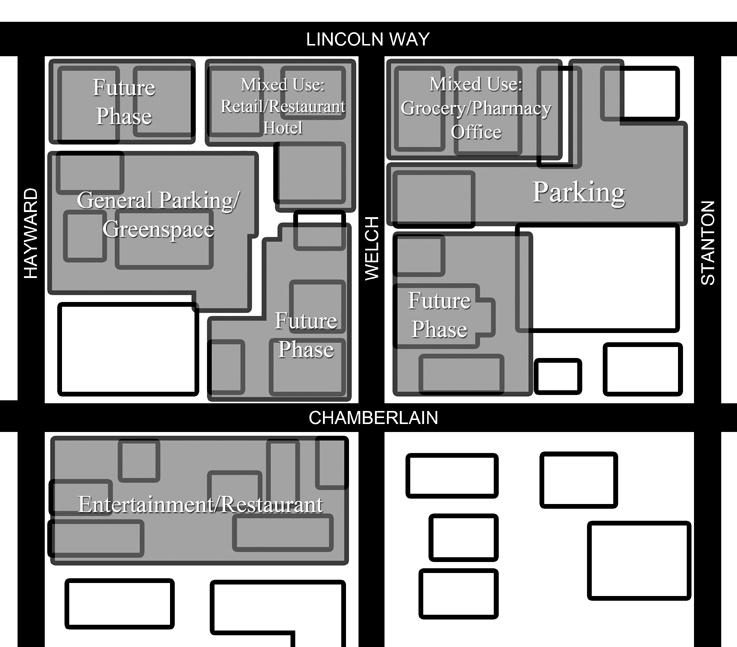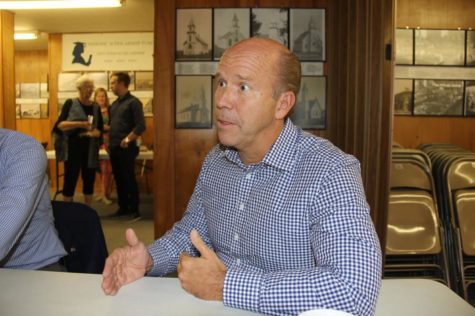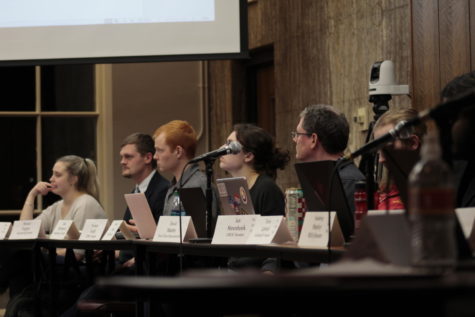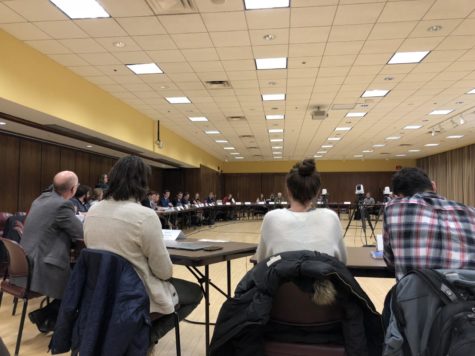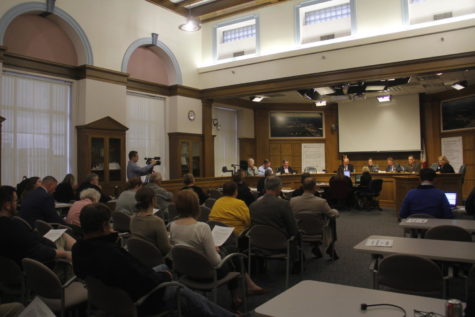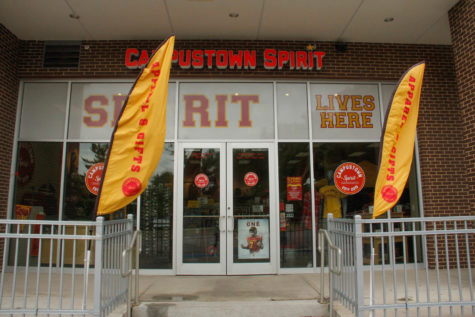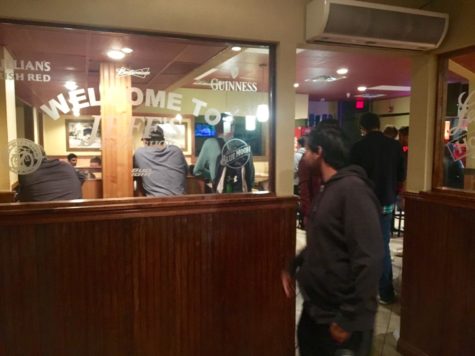Belding: Campustown changes should not be accomplished through eminent domain
Graphic: Aaron Hewit/Iowa State Daily
Property group, LANE4 is looking to develop Campustown. LANE4 is working on renovations in other places in Ames, but the Campustown facelift is of main focus for students. The blocks indicate areas LANE4 plans to revitalize. All plans are still subject to change.
January 23, 2011
In its quest to make Campustown more of an attraction for the population of Ames not affiliated with the University, the city of Ames may allow the use of eminent domain to transfer properties from their current owners to the development corporation, LANE4, that was selected to revitalize the area.
While eminent domain has its civic uses, it should never be used to forcefully end a business negotiation process that is not progressing. Business transactions require the consent of both parties. A meeting of the minds is necessary — each party must see an advantage in the transaction.
Eminent domain has been used to construct parks, roads, infrastructure systems, museums and other places with large benefits to the public community. Each person benefits from these, and not in a financial way — which would be lopsided and unfair — from the use of eminent domain for public projects.
The use of the state’s power of eminent domain is simply unjust if it is used for the benefit of private enterprises.
Directly assisting a private business is not a legitimate use of the state’s coercive, forceful power. In doing so, the state favors one party over another and awards financial assets to the favored party. But favoritism — especially economic favoritism — has no place in politics.
Politics and government are only concerned with public affairs affecting the whole community. Financial gifts to select individuals or corporations are an appalling abuse of government authority. Politics is supposed to be an activity in which we can all participate for the good of the whole.
Politics is supposed to be about things that unite us, things that bind us together — not, as in the case of business development, things that divide us. There are only so many owners of LANE4. Only so many people will benefit from its takeover of Lincoln Way from Hayward Avenue to Stanton Avenue.
Eminent domain used for private development allows one party — in this, as in most cases, a richer party — to benefit at the expense of another — in this, as in most cases, a poorer party. The wealthier party, through well-placed lobbying and other methods of influence, is able to convince the people with the authority to make eminent domain happen that he is able to deliver what they want.
Government engineering of the economy — giving land, resources and permissions to those companies willing to build the government’s vision of economic life — is wrong. The free exchange of property allows viable businesses to emerge. Each business in Campustown has its clientele. They are not derelict, they are not a waste of space.
It should not be surprising that the area across the street from campus is filled with businesses frequented by students living on and around campus, who attend classes at that campus. The other residents of Ames are more than welcome to join in the life of Campustown.
But they should understand the businesses there will deliver, as their first order of business, the goods according to what their primary customers — the students — want. Of course there will be a dozen bars and clubs, tattoo parlors, restaurants offering inexpensive food from all over the world, and a coffeehouse.
There are areas for shopping already in Ames. There are already four groceries in Ames and many more pharmacies. The “Future Phase” labels on LANE4’s graphic of their plan for Campustown are dangerously vague, as is the enormous entertainment label.
And while there probably is a market for groceries, entertainment venues and other businesses that would appeal to the greater Ames population in addition to the students, those projects should be undertaken by local members of the community who actually have a stake in it — not a development corporation from Kansas City, Mo.
Even if LANE4 would receive a benefit from the city’s use of eminent domain — even if the people of Ames would receive more individual benefit or enjoyment of the area from the city’s use of eminent domain — the procedure would still be unjustified.
Governments do not exist to provide individual benefits to people. To the extent they exist to provide benefits at all, it is to provide community benefits. The community is not made better by an individual going out and shopping — it is made better by groups doing so. Community life is not improved by individual pleasures and individual accumulation of money.
The outward appearance may be improved, and the material quality of life might be improved, but communities exist to provide spaces where people interact and are not isolated. Community life is the set experiences we all share.
On interfering with one another, John Stuart Mill wrote that a man’s “own good, either physical or moral, is not sufficient warrant.” He went on, writing that a man “cannot rightfully be compelled to do or forbear [from doing] because it will be better for him do so, because it will make him happier, because, in the opinion of others, to do so would be wise or even right.”
Why? Because it is “in the opinion of others.” Economics is left to individuals in their private capacities. Politics and government exist to accommodate our interactions with others.
Redevelopment of Campustown might be in order. In fact, it probably should change to a more downtown-like area. But such change should not be accomplished through eminent domain. Economic decisions should be made by the people experiencing those economic dynamics on a daily basis — the business owners and their clients. They should not be made using the political and coercive process.

